Panama’s med students will have a great challenge ahead of them during the course of the next eight months: the organization of the “2020 August Meeting” –the second and most important annual assembly of the International Federation of Medical Students’ Associations, which will be held in Panama City August 2-8, with ‘pre-assembly’ activities starting on July 30.
The event’s organization, the topic of which will be “Adolescent Health: Fighting Suicide and HIV,” is the responsibility of Alianza Panameña de Estudiantes de Medicina para la Cooperación Nacional e Internacional (APEMCONI), the Panamanian organization that has represented Panama at the international Federation since 1999.
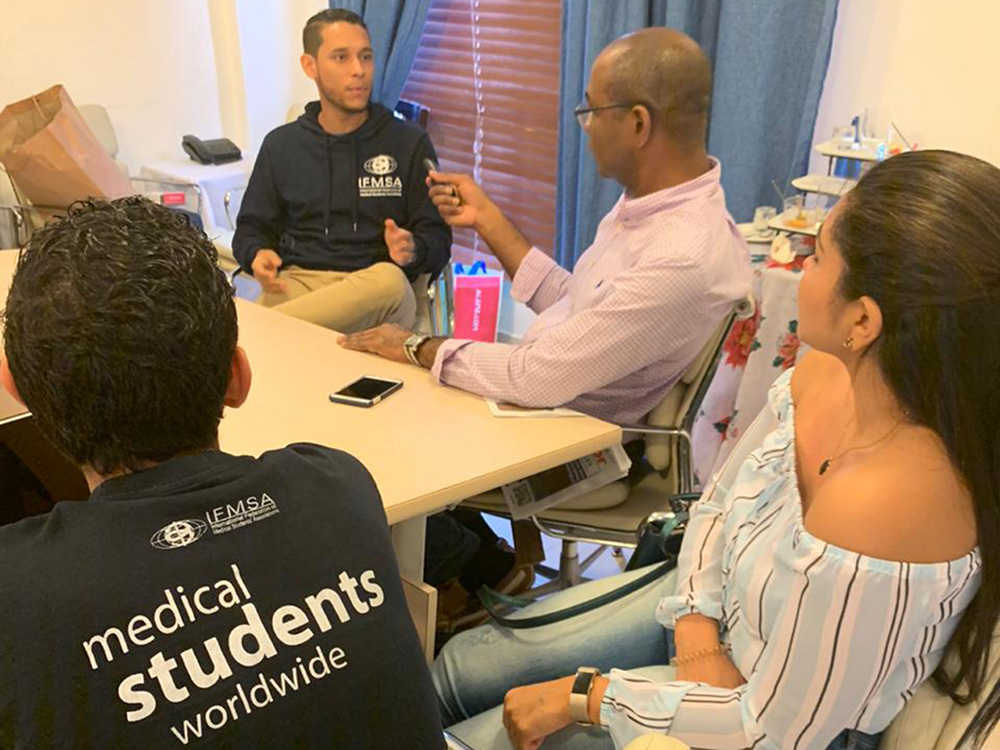
Martín Pretelt, the event’s chairman, expects 1,500 delegates to arrive in Panama from the 135 countries represented at the Federation. “It had been a long time since the Americas had hosted an international meeting. Our next assembly will not only be a landmark in this regard, but also an opportunity for students from Central America to participate since, generally speaking, these activities take place in distant and costly locations,” he said.
Panama as Host Country: A Totally Unexpected Occurrence
The way in which Panama won the status of host country for the 2020 August meeting is, in Martín Pretelt’s own words, “a serendipity”. He explained, “It was something no one had expected, as it was not contemplated in the short nor medium-term plans of the national student alliance.” According to Pretelt, the opportunity presented itself due to a technical error of Ghana, the previous official candidate, which prompted the Federation to declared the host country position as vacant, also deciding to carry out an on-line election for the first time in its history.
Pretelt continued, “It wasn’t until the third call, in November of 2019, that Panama decided to participate. It was then that we approached the company, Expo Eventos de Panamá in order to receive support in securing the host country position. With them, we prepared an invitation package in which Panama’s privileged geographic position stood out like ‘a piece of cake’, even as we competed against Pakistan, Macedonia, and Montenegro.”
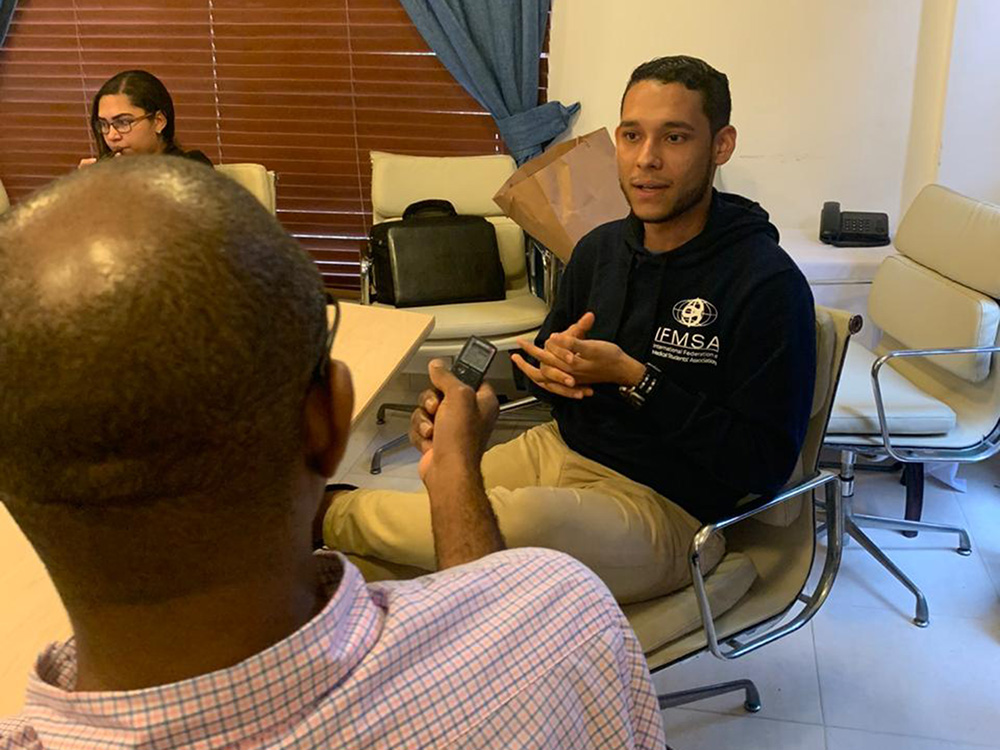
Although the benefits of Panama’s aerial connectivity were major factors in the decision, it was the skill and organizing committee’s knowledge of the international federation’s culture (Panama already had experience in similar regional events) what consolidated the outcome. Pretelt explained,
“By analyzing the Federation’s guidelines, we noticed that participating companies had omitted the inclusion of the locals from their proposals, whereas we had included, among other things, an activity that fosters environmental sustainability and a ‘Day of Good Deeds’ as part of the scheduled activities.”
The aforementioned formula resulted in a resounding success, taking into account that the Panamanian team had required two additional weeks to present their proposal, and that Pakistan was actually ahead of them in timing. The Isthmian group received the happy news on December 3. “This is the first time in 69 years that the host country is selected through electronic vote, which places a huge responsibility on the Panamanian association,” said the committee’s chairman.
A Different Type of Assembly
Contrary to what takes place at traditional medicine-related conventions, the ‘August Meeting’ –as it is known in the Federation’s jargon—will not be a medical-specialties event, but rather a world meeting designed to tackle public health topics, the protection of the environment, and the comprehensive training of well-rounded professionals.
Melissa Concepción, the committee’s national public health officer, explained, “The event’s mission and vision are to show medical students the humanitarian aspects of the field, fostering their contact with the general population. We have noticed, for instance, that there seems to be a boom with regards to one of the meeting’s main topics –suicide prevention—despite the fact that, for the average Latin American, this is yet to be a priority. Our goal is to emphasize the impact of mental health on our entire bodies, just as the health of the environment does.”
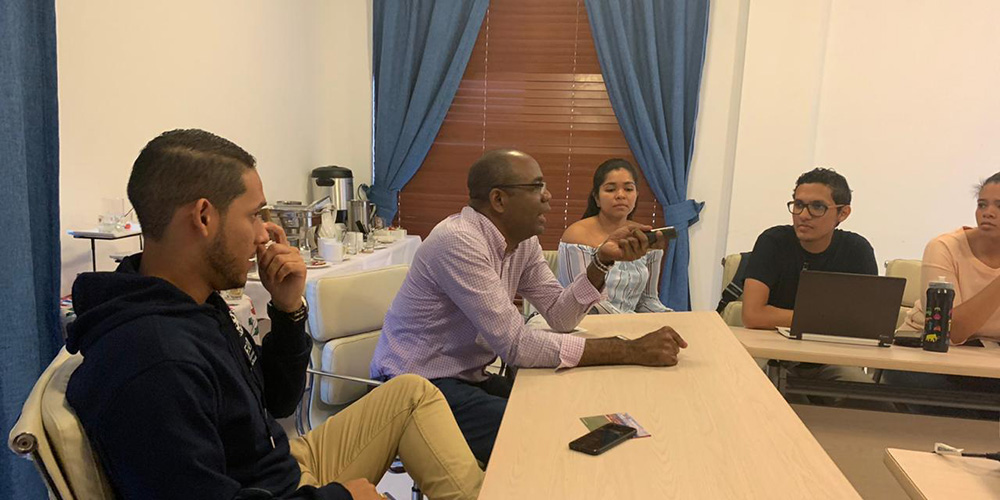
As a matter of fact, during the days prior to the Assembly’s opening (July 30-August 1) seminars on public health, the handling of environmental topics, and others will be offered to participants with the purpose of spreading knowledge on global issues that can be applied in their countries of origin. An example of this is a scheduled visit to the “República de Colombia” elementary school in San Miguelito (a greater Panama City municipality known for its numerous social problems,) which hosts a vegetable garden program. According to Pretelt, said initiative “…allows students to harvest and prepare their own meals with an emphasis on nutrition.”
Another member of the event’s organizing committee, Abdías Palacios, highlighted the importance of the pre-assembly seminars. “Universities typically give a very academic focus to our field; however, the Federation’s seminars provide knowledge on topics such as finances and on how to have an impact on the professional world from a holistic perspective,” he said.
The assembly itself will take place August 2-8, providing, according to Pretelt, “…the opportunity [the local association has] to showcase Panama as the world’s connecting link. We wish for each participant to enjoy a unique experience with details from their respective countries of origin.”
Mornings during the assembly will be devoted to divulging the work of the various national teams, whereas afternoons will be spent at decision-making plenary sessions in which national-association presidents will have the right to vote, in addition to the presentation of nominations for president, vice-president, and directors of the international Federation.
Likewise, thematic events have been scheduled for August 5-7, being one of such days devoted to Youth Against Aids (the Germany-based,HIV/AIDS-prevention organization) and another, to mental-health topics. Friday, August 7th will be Academic Day, an annual event for Panamanian students of medicine which, this year, has been included into the assembly, “…in order for 500 Panamanian med students to interact with 1,000 of their counterparts from around the world,” Pretelt explained.
Another activity of interest will be the Day of Good Deeds, which will consist in a beach-cleaning effort between the students and local organizations. Its coordinator, Anyeline Valdelamar, explained, “The idea is for us to realize where does the trash we generate (including needles, razors, and other sharp objects) end up. This is true not only for Panama, but for a large part of Latin America and the world as well.”
The Federation: Forging Worldwide Educational Alliances
The International Federation of Medical Students’ Associations (www.ifmsa.org) is a Europe-based NGO established in the 1950s to promote positive changes at the local level with a global outreach. The entity is divided into 5 regions (the Americas, Europe, the Middle East, Asia-Pacific, and the Mediterranean,) each of which comprises national associations that, in turn, encompass the largest number of med students of each country.
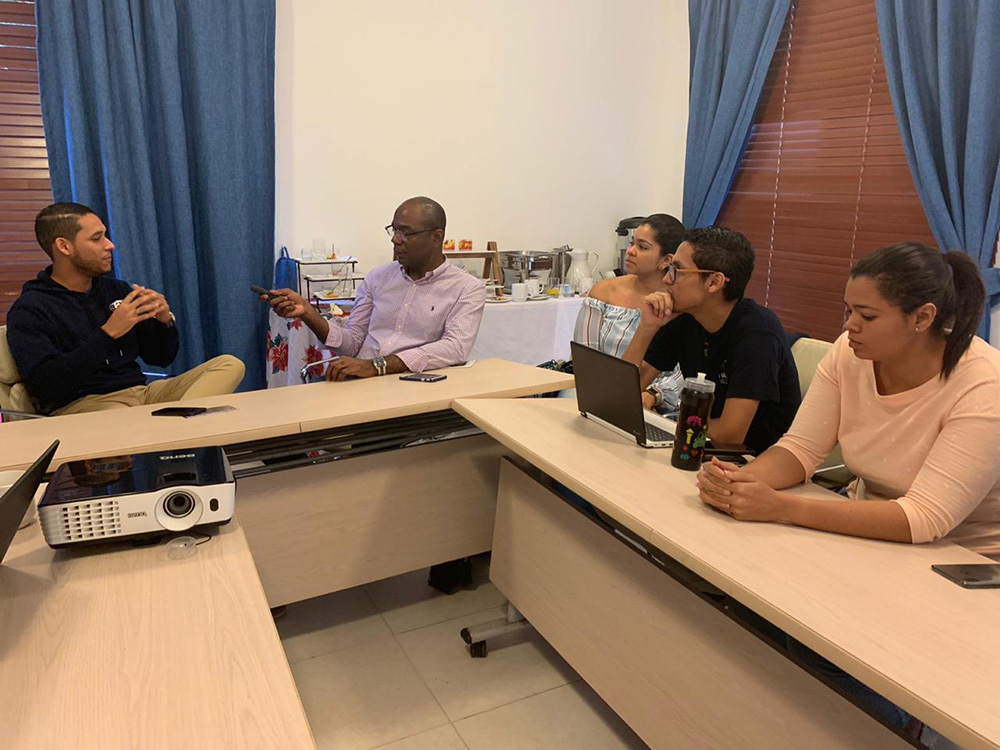
The Federation’s Panamanian chapter was first accepted in 1985 (being the third member of the Americas back then,) although, due to the political crisis and the subsequent US invasion of the late 1980s, it was temporarily suspended. The current chapter, APEMCONI, was established and accepted into the Federation in 1999, thanks to the efforts to Dr. Juan Manuel Muñoz. Today, it is considered the fourth largest Federation member of the Americas.
Thousands of students from around the world have been benefited by the Federation’s exchange program, both at the clinical and research levels. Other popular fields of this program are public health (communicable and non-communicable diseases,) sexual & reproductive health (STDs, HIV, abortion, etc.) peace & human rights, and medical education. Said exchanges are conducted through the respective committees of each national association.
Being part of a specific committee, nevertheless, does not limit members from acquiring knowledge in other areas. “If there is something that stands out from what I’ve learned at the Federation is the phrase, ‘Think globally, act locally,’ which is the way things are handled at the various committees. If you are a member of a specific committee, for example, you have the opportunity to learn from other groups, both at the national and international levels,” said Linda Villarreal, APEMCONI’s exchange coordinator.


































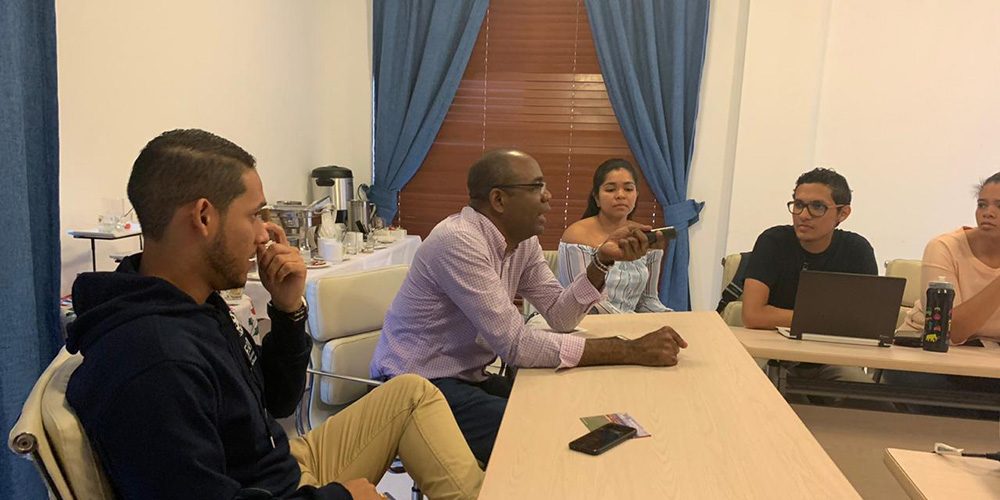
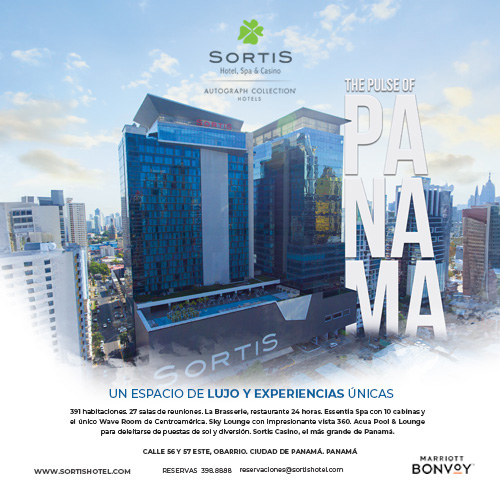




































Comments 0